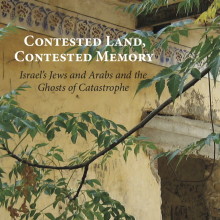By Jo Roberts | (Informed Comment) –
Israelis go to the polls on March 17 to elect a new government. The incoming Knesset will face an issue that fractured the previous coalition: Prime Minister Binyamin Netanyahu’s proposal to amend the constitutional Basic Laws and define Israel as a Jewish State. In an increasingly racialized society, Netanyahu’s critics fear that this amendment will undermine Israeli democracy, and with it the citizenship of Palestinian Israelis, who make up some 20% of the population.
Palestinian Israelis have been second-class citizens since the state’s founding. During the 1948 War, over 750,000 Palestinian Arabs fled the land that became Israel, many under duress: Palestinians remember this massive population transfer as the Nakba, or Catastrophe. After the war, the remnant community, many of whom had been displaced during the fighting, was placed under martial law. For 18 years, scattered and confined, they were unable to rebuild their shattered social infrastructure. Now, poverty rates in their communities are over 3 times as high as those for Jewish Israelis.
After the 1948 War, the creation myth that took shape in Israeli collective memory did not include the difficult history of the Palestinian Arabs and their removal. Few Israelis had not lost friends or family in the Holocaust or the War. Their new state was shelter from a traumatic past and security against a similar future, and there was no room for anything that might threaten that – including the story of the Nakba.
Revisionist Israeli historians have detailed the history of the expulsions, but that history is absent or obscured in contemporary school textbooks, even those in Arabic. Public commemoration of the traumatic past is deeply significant for Israelis, but Nakba commemoration is penalized – under the 2011 “Nakba law,” organizations face fines if they mark Israel’s Independence Day as a day of mourning.
Now, as national belonging in Israel is increasingly understood in ethnic terms, remembering the Nakba is becoming more important for Palestinian Israelis. It foregrounds the Palestinian aspect of their conflicted dual identity, and it confronts Jewish Israelis with what historian Benny Morris called the “original sin” of Israel’s founding, which still shapes present-day inequities.
Third-generation Palestinian Israelis tend to be more politically vocal – unlike their grandparents and parents, they haven’t lived through internal displacement and martial law. For them, the Nakba explains why, as Jaffa politician Sami Abu Schehadeh puts it, “We live on the periphery.” Sami’s grandfather Ismail was a boy when his family fled the shelling of their village to take refuge in Jaffa. “Most of our land and all of our property was confiscated, through and after the Nakba. Our families, our elites, our middle class – all of our society was destroyed,” Sami told me when I interviewed him.
ADRID (the Association for the Defense of the Rights of the Internally Displaced) organizes marches of return to the sites of former Arab villages. Few of these villages remain intact; most were demolished and are now planted over with trees, part of the Jewish National Fund’s reforestation projects. The thousands who attend ADRID’s annual marches are met with counter-protestors waving Israeli flags, and sometimes with violence.
Raneen Geries has gone on these marches for years. Now in her thirties, she wasn’t taught about the Nakba in her Arab high school. “They told us nothing about our history,” she explained to me. “I asked my teacher, ‘Where did Arabs come from? Did we come from Germany as well?’ And it’s still that way today.” The absent history of Arab presence in the land reaffirms Palestinian Israelis’ status as outsiders, not truly part of Israel’s polity.
For Raneen and Sami, the Nakba is an ongoing process. Per-student funding for Arab high schools is a fifth of the funding for Hebrew high schools. Ethnically-defined land-development restrictions mean that 26.6- of Jewish Israelis. Lod’s city council has built a 3-metre wall round its Arab quarters, refusing to provide garbage collection or street lighting inside. A 2014 Haaretz poll showed 75% of Jewish Israeli respondents are opposed to mixed marriage, and vigilante groups are policing this in several neighbourhoods.
The aftershocks of the Nakba continue to reverberate through Israel’s Palestinian community. Mainstream rightwing parties such as Yisrael Beytenu, which sponsored the Nakba Law, propose the transfer of Palestinian Israelis. Foreign Minister Avigdor Lieberman has called for swapping high-density Arab areas close to the Green Line for settlements as part of a peace deal with the Palestinian Authority, and recently suggested financial incentives to encourage Palestinian Israelis to leave their country. Avi Dichter, then Public Security Minister, commented “Whoever cries of the Nakba year after year, shouldn’t be surprised if they actually have a Nakba eventually.” If the new Knesset chooses to further strengthen Israel’s self-definition as a Jewish state, Palestinian Israelis can only be further marginalized.
Jo Roberts is the author of Contested Land, Contested Memory: Israel’s Jews and Arabs and the Ghosts of Catastrophe

, which placed second for the 2014 Dayton Literary Peace Prize and was a finalist in the National Jewish Book Awards.



 © 2026 All Rights Reserved
© 2026 All Rights Reserved